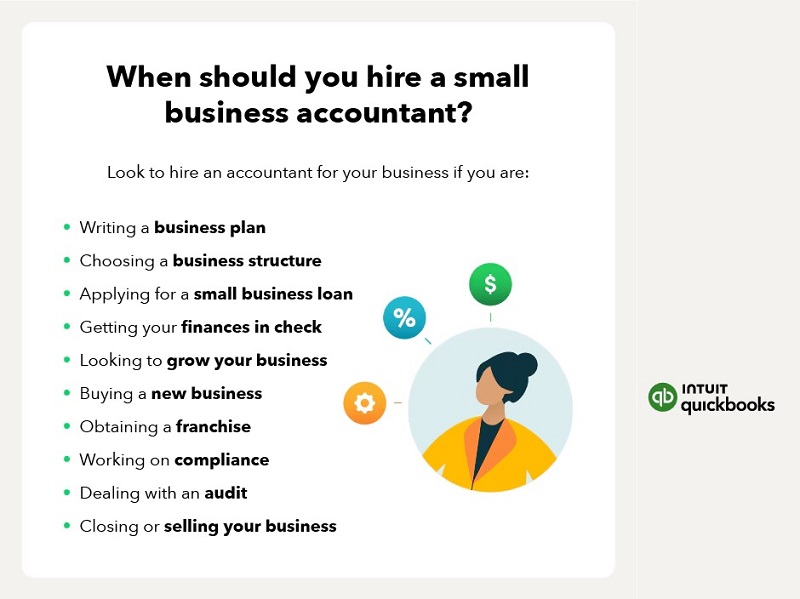
It’s Not Magic, It’s Bookkeeping Basics! The Simple Guide to Financial Freedom
May 15, 2024
The $100,000 Mistake: Understanding Accounts Payable vs. Receivable
May 29, 2024Why Business Owners Should Learn Accounting Skills: A Guide to Financial Empowerment
Every business, regardless of size or industry, thrives on a foundation of financial health. Understanding your company’s financial standing is crucial for making informed decisions, ensuring stability, and ultimately achieving success. This is where accounting skills come into play. They equip business owners with the knowledge and tools to navigate the financial landscape of their business.
While some entrepreneurs might shy away from the world of numbers and debits and credits, developing foundational accounting skills is essential for every business owner. This article will explore the reasons why financial literacy is a critical asset for business success, and demystify the benefits of learning basic accounting principles.
I. Introduction
Is your business thriving, but your financial picture remains blurry? Many entrepreneurs shy away from accounting, but understanding the numbers is crucial for success. This guide unlocks the power of accounting skills for business owners. We’ll show you why financial literacy is your secret weapon, demystifying key accounting concepts and empowering you to make informed decisions that drive your business growth.
II. The Perils of Financial Ignorance
Operating a business without a grasp of accounting fundamentals can be like driving blindfolded. Here’s how a lack of accounting knowledge can lead you astray:
- Financial Blind Spots: Not understanding basic accounting principles can create blind spots in your financial awareness. This can lead to mismanaging cash flow, missing out on valuable tax deductions, and setting inaccurate pricing for your products or services.
- Poor Decision-Making: Without a clear understanding of your finances, you’re more likely to make uninformed decisions. This can result in overspending, failing to track your business’s profitability, and underestimating crucial costs.
- Increased Risk of Failure: Poor financial management is a major factor contributing to business failures. By neglecting accounting, you expose your business to unnecessary risks and hinder its chances of long-term success.

III. The Benefits of Accounting Savvy
Equipping yourself with even basic accounting skills can have a transformative impact on your business. Here’s how accounting savvy empowers you to take control:
- Informed Decision-Making: Understanding accounting data allows you to make strategic choices based on a clear picture of your finances. This empowers you to optimize resource allocation, develop pricing strategies, and make sound investment decisions.
- Financial Control & Stability: Accounting skills enable you to maintain control over your company’s finances and ensure its stability. You’ll be better equipped to manage cash flow, budget effectively, and identify areas for cost-saving opportunities.
- Improved Communication & Trust: Understanding accounting principles facilitates clear communication with investors, lenders, and stakeholders. You’ll be able to confidently present financial statements, understand loan requirements, and secure funding with a strong financial foundation.
By investing time and effort into learning basic accounting, you’re investing in the future of your business. In the next section, we’ll delve deeper into the essential accounting skills every business owner should possess.
Part 2: Essential Accounting Skills for Business Owners
The world of accounting might seem intimidating at first glance. However, by focusing on a few key areas, you can acquire the foundational accounting skills needed to manage your business effectively.
Demystifying Accounting Jargon
The first step is to familiarize yourself with some essential accounting terminology. Here are some key terms you’ll encounter:
- Assets: Resources your business owns that have value (e.g., cash, inventory, equipment)
- Liabilities: Debts your business owes to others (e.g., loans payable, accounts payable)
- Equity: The owner’s claim on the business’s assets after liabilities are subtracted
- Revenue: Income generated by your business from selling products or services
- Expenses: Costs incurred by your business to operate (e.g., rent, salaries, supplies)
- Profit & Loss Statement (Income Statement): Summarizes your business’s revenues and expenses over a specific period.
- Balance Sheet: Provides a snapshot of your business’s assets, liabilities, and owner’s equity at a specific point in time.
Understanding these basic terms will equip you to interpret financial data and make informed decisions.
Mastering the Art of Bookkeeping
Bookkeeping forms the foundation of any sound accounting system. It involves the systematic recording of your business’s financial transactions.
- The Importance of Bookkeeping: Proper bookkeeping ensures accurate financial records, which are crucial for tax purposes, financial analysis, and generating reports.
- Record-Keeping Fundamentals: Basic record-keeping practices include tracking all income and expenses, categorizing transactions (e.g., rent, salaries, marketing), and maintaining accurate and up-to-date records.
- Choosing a Bookkeeping System: You can choose between manual bookkeeping methods (using spreadsheets) or accounting software. Software automates many tasks and simplifies record-keeping.
A well-maintained bookkeeping system is essential for generating reliable financial statements, which we’ll discuss next.
Understanding Financial Statements
Financial statements are the cornerstone of financial communication. They provide a comprehensive picture of your business’s financial health.
- The Power of Financial Statements: These statements are used by investors, lenders, and other stakeholders to assess your business’s performance and financial position.
- Profit & Loss Statement (Income Statement): This statement summarizes your business’s revenues and expenses over a specific period (e.g., month, quarter, year). It shows your net profit or loss, which indicates your overall profitability.
- Balance Sheet: This statement provides a snapshot of your business’s financial position at a specific point in time. It shows the balance between your assets, liabilities, and owner’s equity.
By analyzing these statements, you can gain valuable insights into your business’s financial health, identify areas for improvement, and make informed decisions about your future strategy.
In the next section, we’ll explore the importance of budgeting and financial forecasting for business growth.
Budgeting & Financial Forecasting
Financial planning is essential for any business that wants to achieve sustainable growth. Here’s how budgeting and financial forecasting can empower you:
- Creating a Budget: A budget is a financial roadmap that outlines your projected income and expenses for a specific period. It allows you to allocate resources effectively, track your progress, and identify potential financial shortfalls.
- Financial Forecasting: Financial forecasting takes your budget a step further by predicting future financial performance based on historical data and market trends. This helps you anticipate potential challenges and opportunities and make informed decisions about investments, staffing, and expansion plans.
By developing a budget and financial forecasts, you gain greater control over your business’s financial future and position yourself for long-term success.
Tax Savvy for Business Owners
Understanding basic tax principles can significantly benefit your business:
- Minimizing Tax Liabilities: By familiarizing yourself with tax deductions and credits available to small businesses, you can legally reduce your tax burden and maximize your profits.
- Tax Compliance: Maintaining accurate financial records and understanding tax filing requirements are crucial for ensuring your business remains compliant with tax regulations.
Consulting with a qualified tax professional can provide valuable guidance on maximizing tax benefits and navigating complex tax regulations.
While developing foundational accounting skills is crucial, there are situations where seeking professional help becomes necessary.

Part 3: Additional Considerations and Resources
Now that you understand the importance of accounting skills for business owners, let’s explore additional considerations and resources to empower your financial journey.
When to Hire an Accountant
There are situations where seeking professional help from a qualified accountant becomes beneficial, especially for:
- Complex Business Structures: If your business has a complex ownership structure, multiple entities, or significant investments, an accountant can provide expert guidance and ensure accurate financial reporting.
- Rapid Growth: As your business experiences rapid growth, the complexity of your financial management increases. An accountant can help you scale your accounting systems and ensure financial stability during growth phases.
- Tax Compliance Issues: Navigating complex tax regulations and ensuring compliance can be time-consuming. An accountant can handle tax filing, tax planning, and advise on strategies to minimize tax liabilities.
Hiring a qualified accountant can free up your time to focus on core business activities while ensuring your financial management is in expert hands.
Free and Affordable Resources for Learning Accounting
Developing basic accounting skills doesn’t require a significant financial investment. Here are some resources to get you started:
- Online Resources: Several websites and online platforms offer free or low-cost courses and tutorials on basic accounting principles.
- SCORE and SBA: The Small Business Administration (SBA) and SCORE, a non-profit organization partnered with the SBA, offer a wealth of free resources specifically designed to help small businesses with accounting tasks.
- Accounting Software: Many accounting software options are available for small businesses, often with free trials or affordable pricing plans. These can automate bookkeeping tasks and simplify financial management.
Investing time and effort into learning the fundamentals of accounting using these resources will empower you to make informed financial decisions for your business.
Here are some frequently asked questions (FAQs) to address common concerns business owners might have regarding accounting:
FAQs
- Q: Do I need a degree in accounting to run my business?
A: No, you don’t necessarily need a degree in accounting to run a successful business. However, developing foundational accounting skills is crucial for understanding your finances and making informed decisions.
- Q: What accounting software is best for my small business?
A: The best accounting software for your business depends on factors like your business size, complexity, and budget. Consider researching and comparing different software options before choosing one.
- Q: How much time should I devote to learning accounting?
A: Start by learning the most essential accounting principles. As your business grows and your needs become more complex, you can gradually expand your knowledge.
- Q: What are the biggest accounting mistakes small business owners make?
A: Some common mistakes include neglecting bookkeeping, failing to maintain accurate records, not understanding financial statements, and operating without a budget.
By familiarizing yourself with these FAQs and the resources provided, you can take the first steps towards financial literacy and empower your business for long-term success.
Resources
Small Business Administration (SBA) Accounting Resources
- SBA provides a wealth of free resources specifically designed to help small businesses with accounting tasks)
SCORE Financial Management Resources
- SCORE, a non-profit organization partnering with the SBA, offers practical financial management guidance for entrepreneurs)
Khan Academy Accounting Courses
- Khan Academy provides free, high-quality online courses to learn basic accounting principles)
DISCLAIMER: The information in this article is for informational purposes only and is not meant to take the place of legal and accounting advice.




